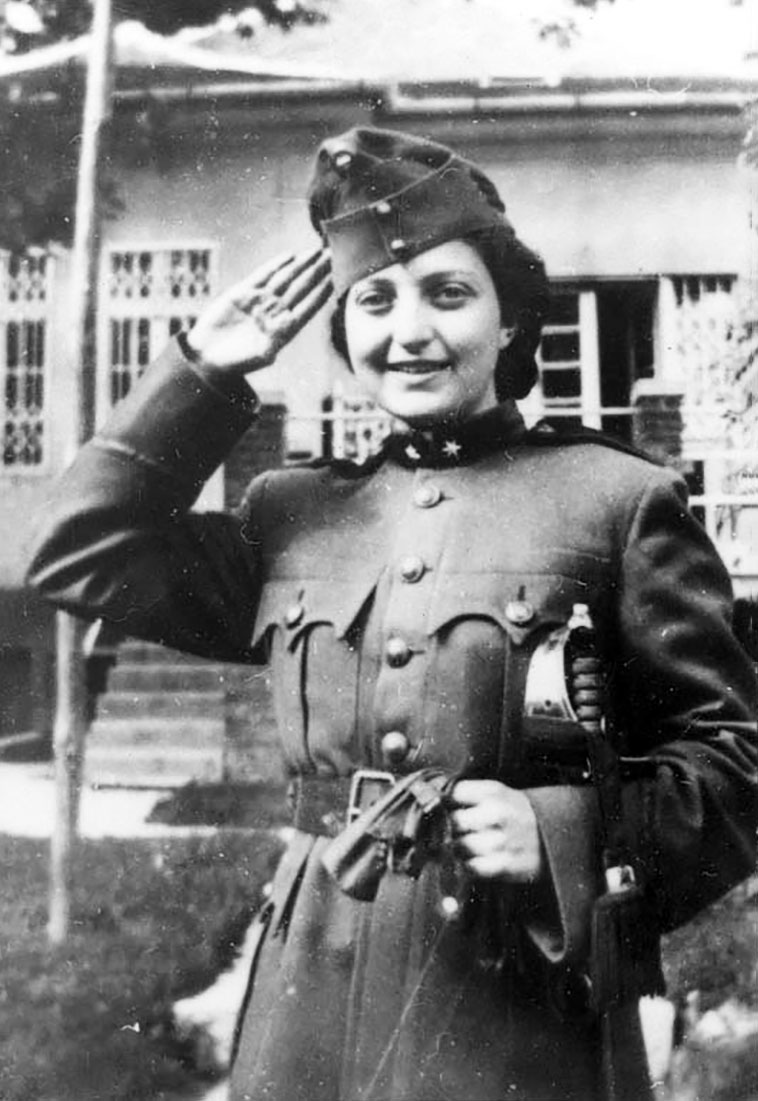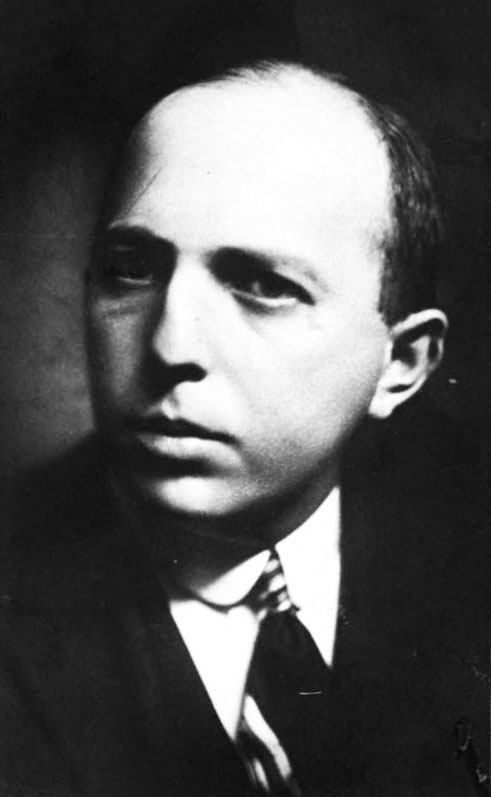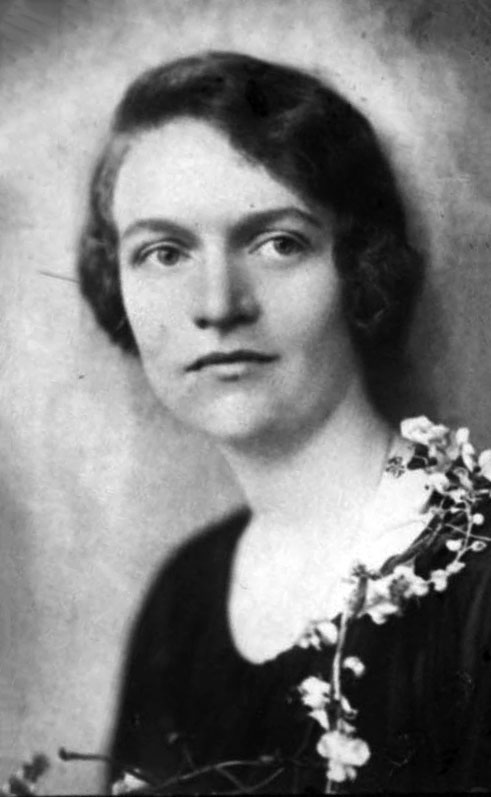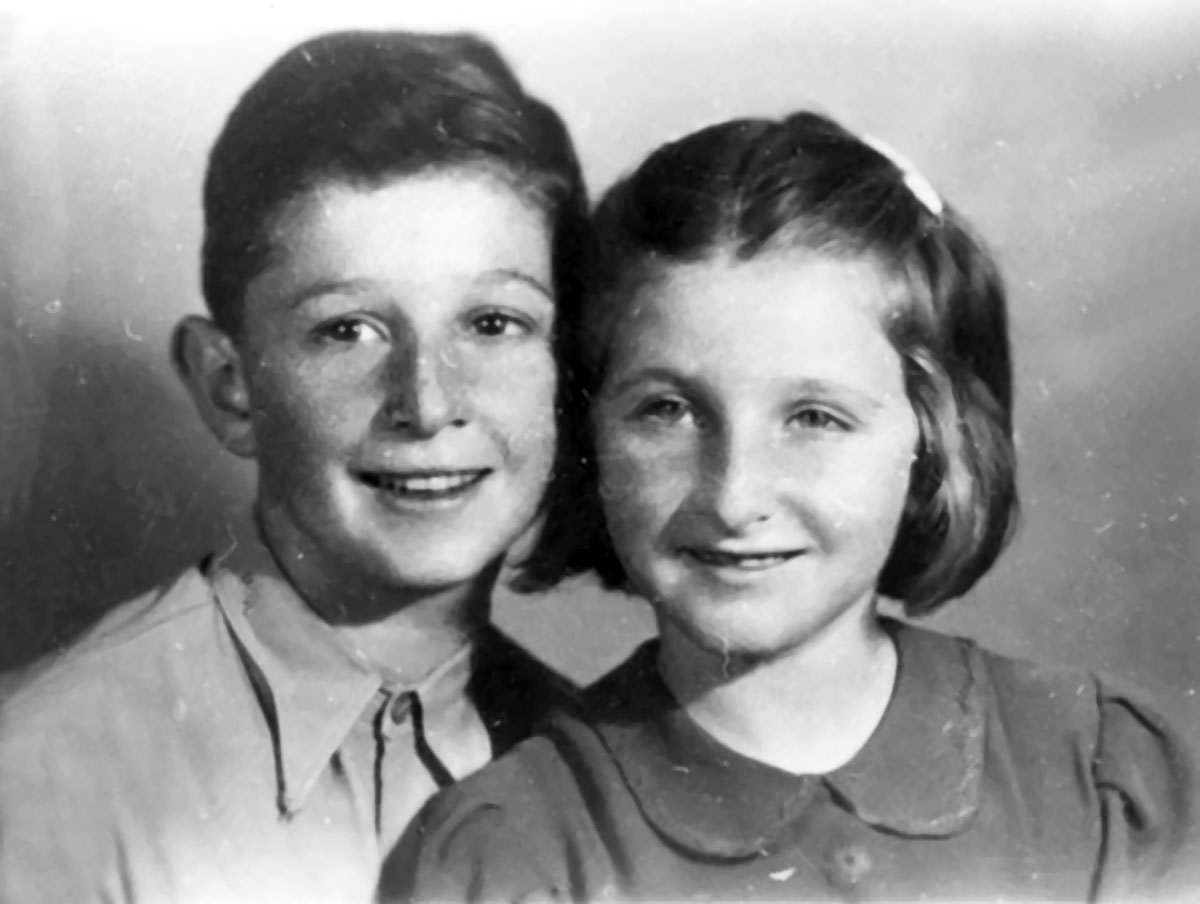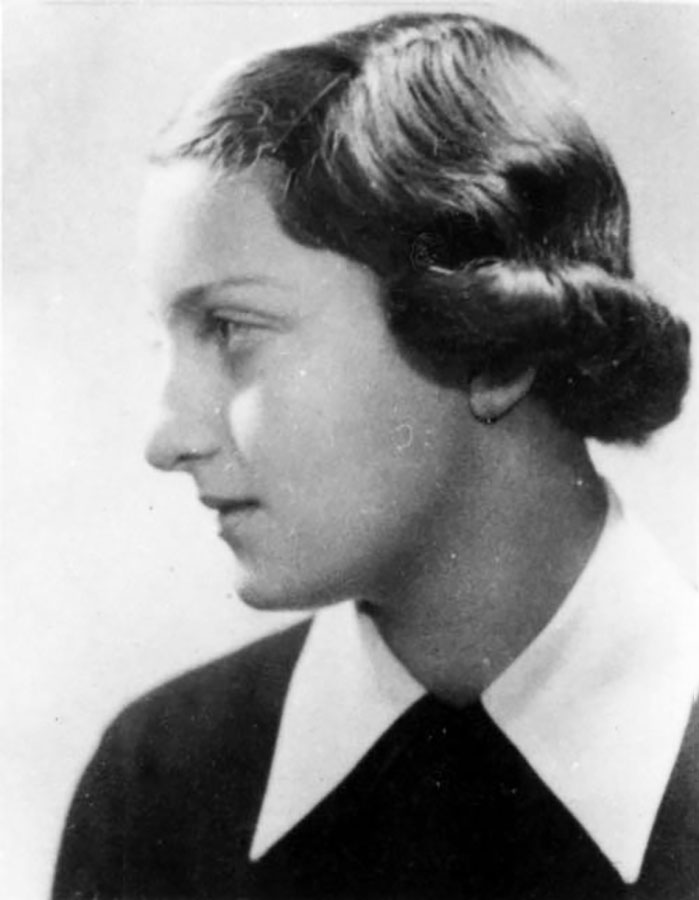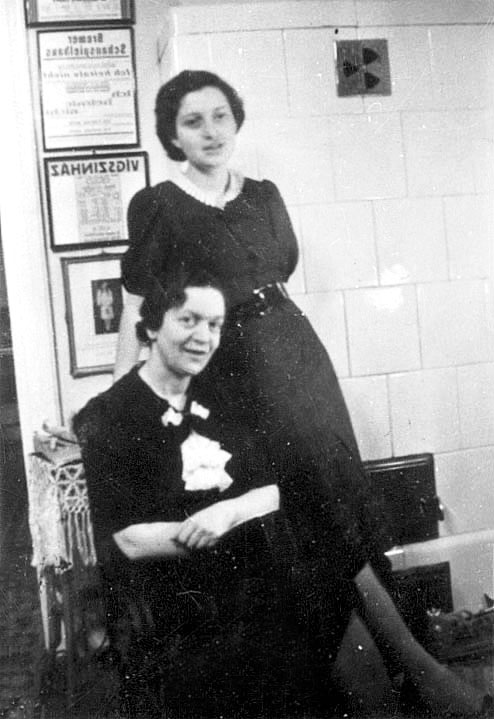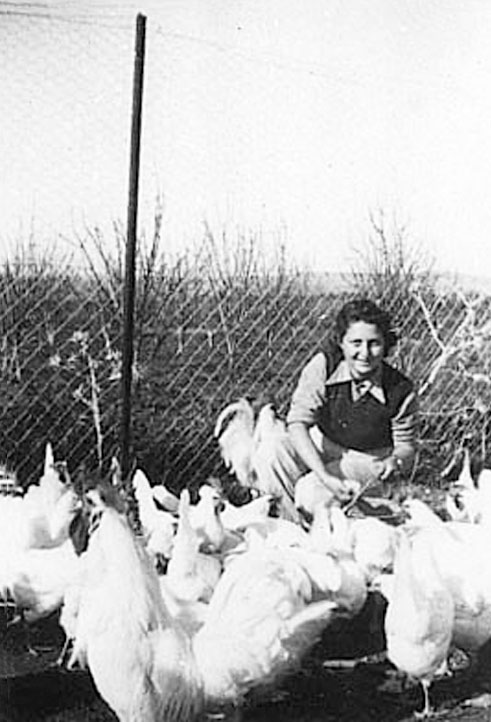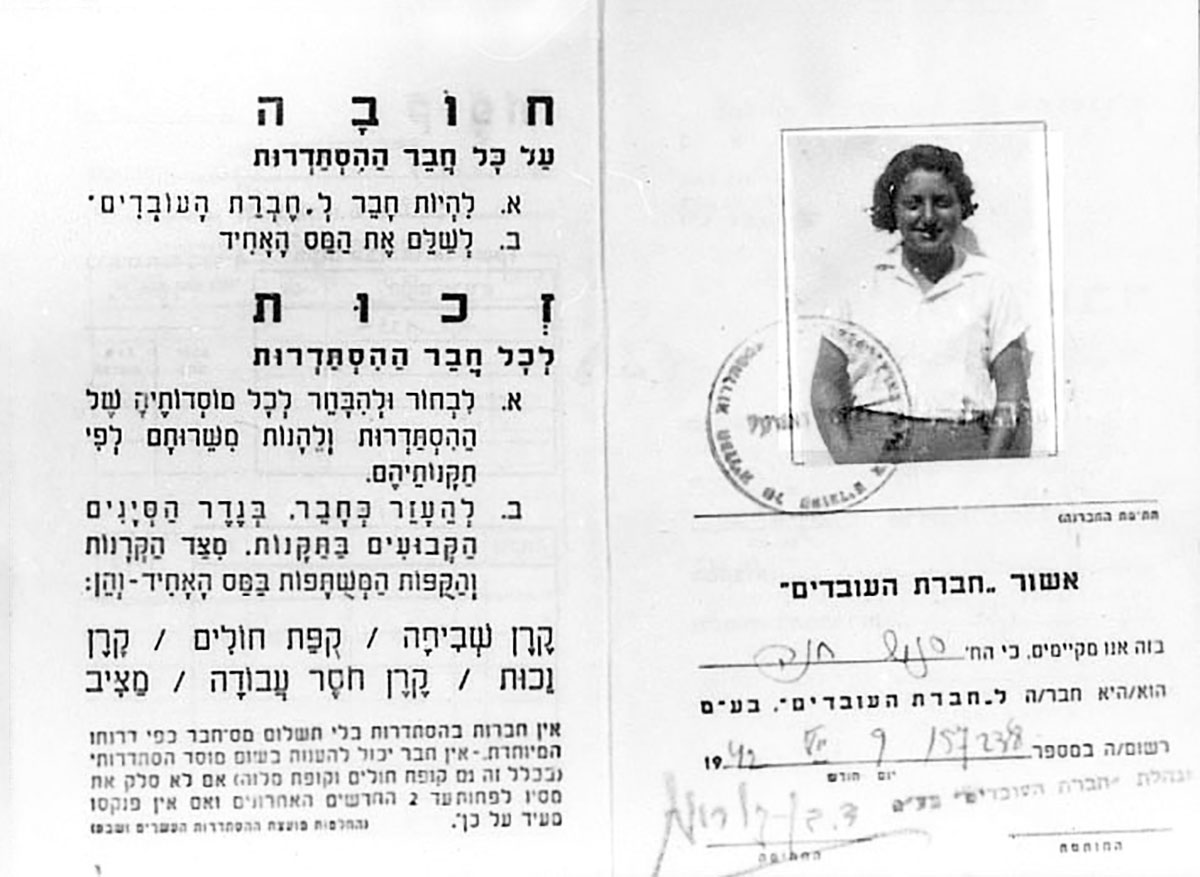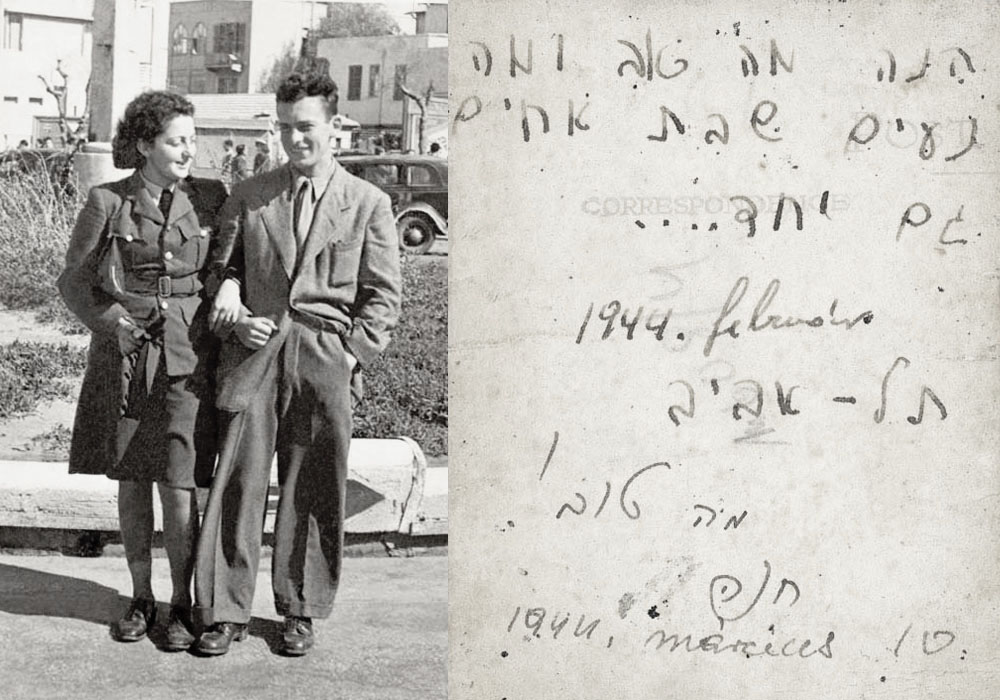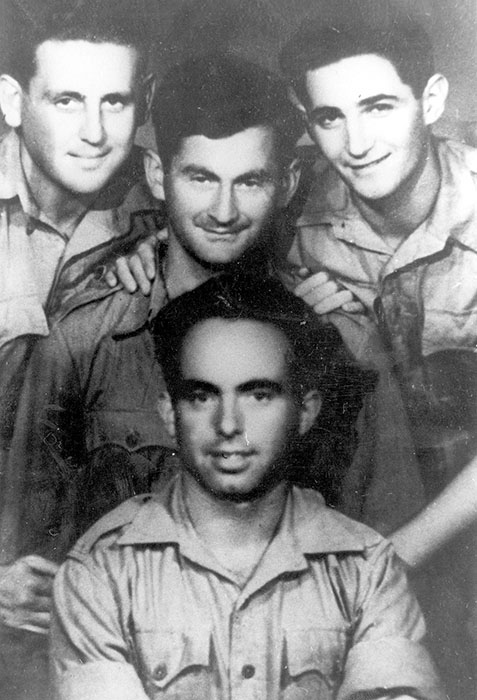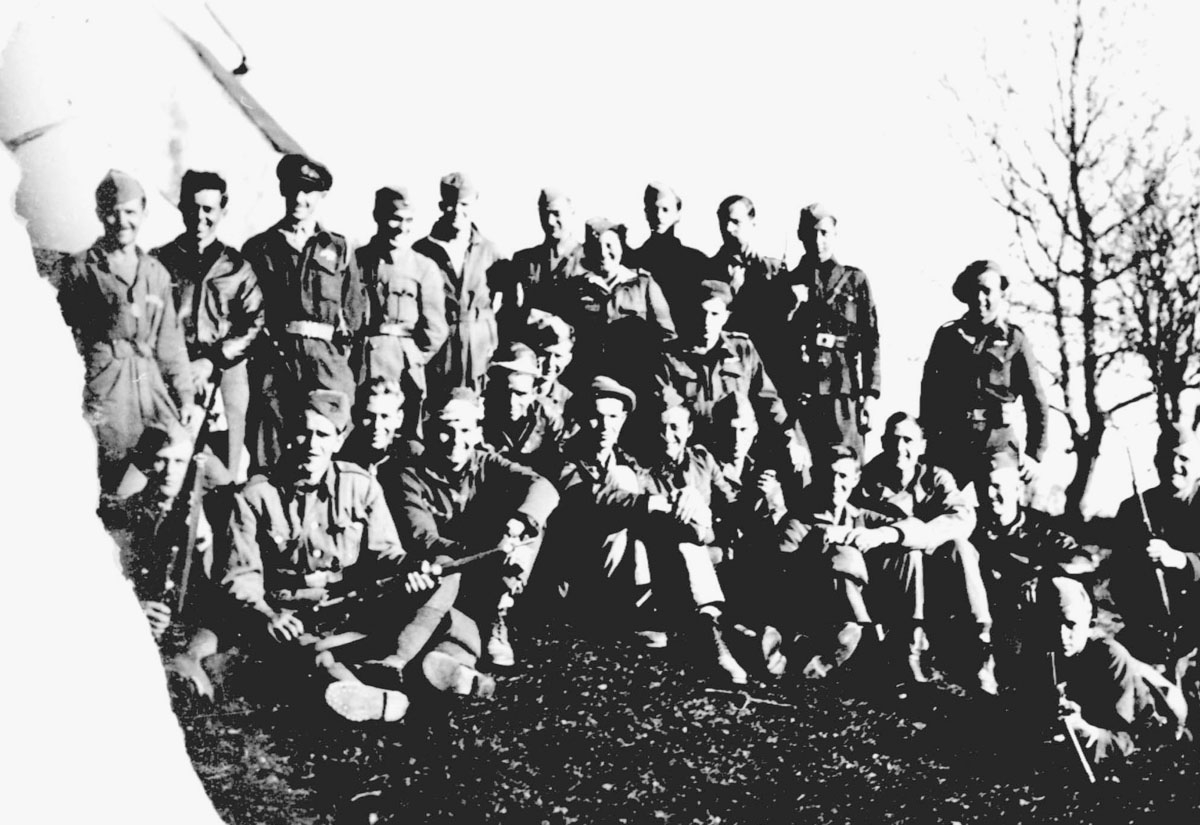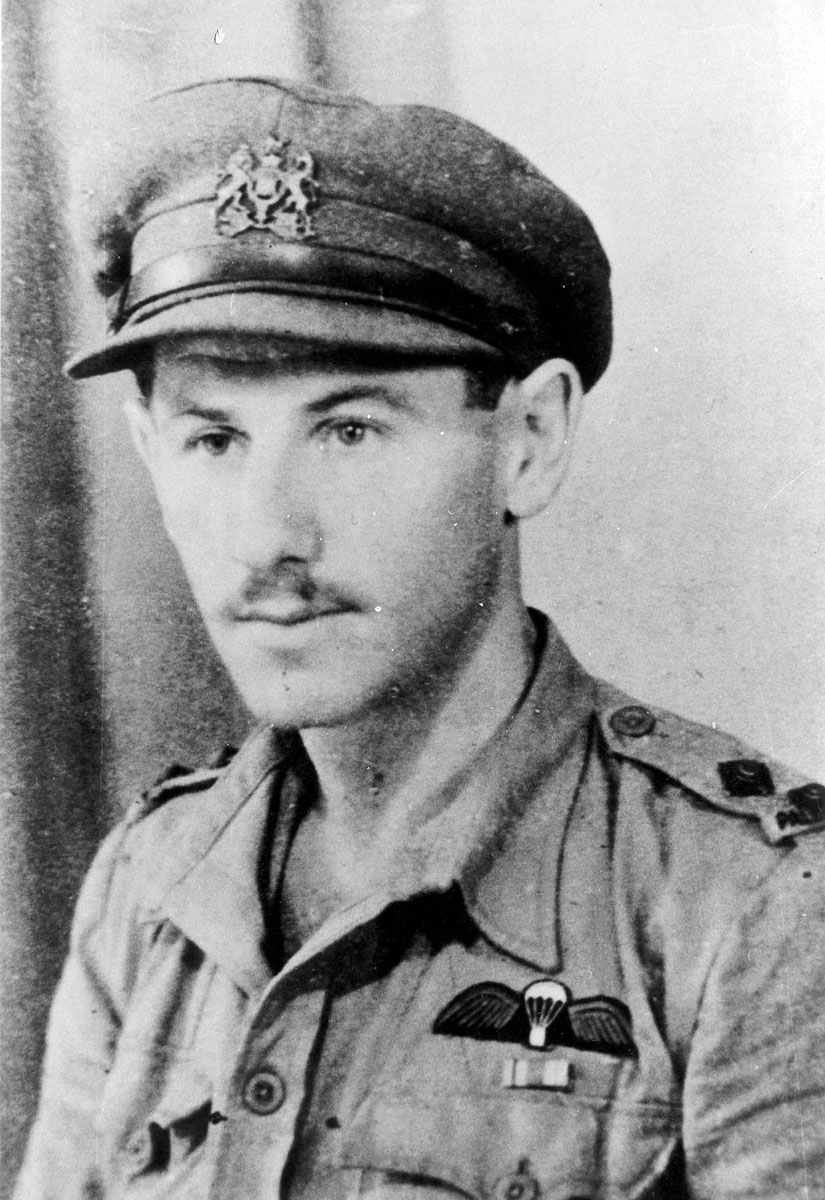"On the morning of 17 June 1944, a man in civilian garb knocked on the door… He had a warrant for my arrest… They interrogated me... They asked about the children, especially about Hannah. The investigator asked me where Hannah was, and smiling, I answered that she was in an agricultural settlement near Haifa. He shook his head and said: 'She is here, in the next room.' The door opened. I was dumbstruck. Aniko [Hannah] was standing in the doorway, held by four men. Her disheveled hair did not conceal the blue contusions above her eyes. She escaped their grip and jumped on me, sobbing: 'Mother, forgive me!'"
Yad Vashem Photo Archive 3213/2
Thus recalled Katherine Szenes (Senesh), Hannah's mother, in the testimony she gave to Yad Vashem in 1960. Until the meeting with her daughter in the jail in Budapest, Katherine was sure that her children had reached a safe haven in Eretz Israel (Mandatory Palestine).
Hannah-Anna (Aniko) Szenes was born in 1921 in Budapest, to an assimilated family steeped in Hungarian culture. Her father Bela was a journalist, author and playwright, who passed away when Hannah was six years old. His plays continued to be performed after his death, and one of them was made into a movie, the proceeds from which enabled his widow Katherine to provide for her children comfortably.
Hannah's talents were obvious from a young age. She maintained a diary and wrote poetry, initially in Hungarian and later, on becoming a passionate Zionist, in Hebrew too. Her brother Giora was one year older than her.
In 1939, Hannah immigrated to Eretz Israel. She attended the agricultural school in Nahalal for two years, and joined Kibbutz Sedot Yam in 1941. In 1943, she enlisted voluntarily in the British Army. She underwent parachute training, becoming one of 37 volunteer paratroopers from the Yishuv in the British Army, and one of 3 women who requested to parachute into occupied Europe in order to help their Jewish brethren.
In March 1944, approximately one week before the German occupation of Hungary, Hannah was parachuted into Yugoslavia, together with another 3 Yishuv paratroopers, Abba Berdichev, Reuven Dafni and Yona Rosen. Reuven Dafni recalled their first encounter with Tito's partisans after the jump:
Having a woman with us, a female paratrooper, made a huge impression on the partisans… It was pretty rare, and the parachute also wasn't what it is today, so a female paratrooper – the news spread like wildfire… there were female partisan fighters, but no paratroopers... They knew we were from Eretz Israel, and that we were Jewish, and what the Jewish people had suffered, and they treated us very well and with respect.
Yad Vashem Archives O.3/6988
Hannah lived with Tito's partisans for about 3 months, trying relentlessly to reach Hungary with their assistance. It was her firm belief that the paratroopers needed to act without considering their own safety, since even if they didn't manage to save Jews, their personal sacrifice would be a symbol that would give strength and faith to the Jews of Europe. Dafni recalled:
I was not happy with Hannah's papers [her forged identity]. Not at all. I saw that the work the partisans did replacing the photographs, … was not bad considering the forest conditions, but it was clear to me that anyone even a little experienced in these matters would be able to see immediately that the photo had been tampered with. I wanted to convince Hannah not to go with those papers, I was scared… We had a very heated argument. She was altogether extremely obstinate... Until she suddenly said: "Even if they catch me – the Jews will be notified. They will know that at least one person tried to reach them."
Yad Vashem Archives O.3/6988
In early June, 1944, Hannah crossed the border into Hungary, and was caught several hours later in the possession of a transmitter. Sandor Fleischman, one of the men who crossed the border with her and was also caught, later recalled:
We had to swim across. Anna carried the radio and we helped her... It was a dark night... and Aniko exerted tremendous effort because the previous time I had said that I can't swim across anymore, as I would drown. She crossed over five or six times. And we had to enter the water again, and bring items across, and transport rifles and other things that we didn't want to get wet... We hid Anna's British Army uniform in the ground, and she wore civilian clothing.
Yad Vashem Archives O.3/7393
After she was caught, Hannah was transferred to a prison in Szombathely, and then to the jail in Budapest. She was subjected to horrific torture and threats on her mother's life, but she did not reveal the radio codes.
14-year-old Yehuda Shaul Frankel was caught with his parents by the Gestapo in Budapest, suspected of helping smuggle Jews from Hungary to Romania. They were imprisoned in the same jail as Hannah Szenes. Yehuda relates:
After Hannah Szenes was arrested, somehow we were informed. I would see her many times on the floor above us. Her cell was opposite ours... She would stick things onto the window... She had tremendous Jewish "chutzpa" as it was called. She would stick all kinds of messages for others in the prison, about all sorts of things… That she had arrived, and what was happening to her. She would cut up paper and stick it... Peretz Goldstein [one of the Yishuv paratroopers] was in the same prison for a short time, so she would send him messages by sticking them onto the window.
Yad Vashem Archives O.3/7833
When Hannah was caught, her mother Katherine was in Budapest. She relates:
I was overjoyed that my children were safe, but fate summoned the suffering of war and my maternal concern... On the morning of 17 June 1944, a man in civilian garb knocked on the door. He was a police detective with a warrant for my arrest. He did not tell me what I was charged with, but I wasn't unduly worried; I knew that they arrested Jews all the time, and I wasn't expecting anything untoward. They interrogated me, initially asking for all my personal details. Afterwards, they asked about the children, especially about Hannah. The investigator asked me where Hannah was, and smiling, I answered that she was in an agricultural settlement near Haifa. He shook his head and said: "She is here, in the next room." The door opened. I was dumbstruck. Aniko [Hannah] was standing in the doorway, held by four men. Her disheveled hair did not conceal the blue contusions above her eyes. She escaped their grip and jumped on me, sobbing: "Mother, forgive me!"
Yad Vashem Archives O.3/1945
After the interrogation, Katherine was sent home and warned not to reveal the fact of her arrest to anyone. After a short time, she was imprisoned again for close to three months, after which she was sent to the Kistarcsa concentration camp on 11 September. Two weeks later, Katherine was released from the concentration camp and returned to Budapest. Hannah was in jail during that entire period.
Hannah Szenes's imprisonment lasted five months. 11-year-old Zipporah Hevroni-Razi met Hannah in jail. She had been smuggled from Poland into Hungary by members of the "Nasza Grupa" Hanoar Hazioni underground, was caught and imprisoned in the Budapest jail. She recalls:
In prison, my sister suddenly whistled a Hebrew song that she had learned at youth movement. We went out into the courtyard for half an hour each day, during which time we had to walk around in pairs. Only one girl, Hannah Szenes, stood in the middle of the courtyard. They also allowed me not to walk with everyone else, because I was a young girl, which the prison wardens took into account. She approached me and asked who I was, because she had heard a Hebrew song. My sister, of course, said: Don't reveal who you are; although we are prisoners together, we mustn't tell because we are still posing as Poles… I told her. I knew a little Hungarian... I met her a few times in the courtyard when she already didn't have any teeth. We knew she was a prisoner. We didn't know she was connected to Eretz Israel. We knew she had connections with the British... On one occasion, friends from outside managed to send us a package. The package contained jam, stuffed peppers, butter... We asked the warden to give some of the contents to Hannah Szenes... She would make dolls out of paper and all kinds of rags. She made bride and groom dolls and sent them to my cell... We only discovered who Hannah Szenes really was when we reached Israel. My sister saw a book with a photo of her in uniform.
Yad Vashem Archives O.3/7068
Hannah stood trial for treason in a military court. At the trial, she expressed her Jewish faith stridently and courageously. Katherine relates:
Aniko's trial was on 28 October. The trial was conducted in secret, and I couldn't be there. They notified us that the sentence would be handed down in another week... Every day I tried to speak to the military judge, so that he would let me talk to my daughter... I came to him. His offices, always teeming with people, were empty... He told me that the sentence had been carried out the previous day.
Yad Vashem Archives O.3/1945
On 7 November 1944, Hannah Szenes was executed by firing squad, having been found guilty of treason against Hungary. She was 23 years old. Yoel Palgi, one of the Yishuv paratroopers who had parachuted into Yugoslavia, crossed the border into Hungary and was caught and imprisoned, relates:
Suddenly, a shot rang out, one or two shots. They were shooting in the courtyard. What had taken place? Perhaps someone was executed again? But no, that couldn't be… Surely it was just a stray bullet from the guard's rifle... Close to noon... "What happened?", asked Fleischman, and was answered: "The shooting we heard was 'the shooting'... They executed Hannah an hour ago." We stood as though turned to stone. Hannah? Impossible! Error, error error! Every drop of blood within me roared, every nerve ending. It couldn't be! Why her, of all people and not us?!… I felt I had to say something, but the words lodged in my throat. I saw that all eyes were on me. I stammered: "She was the most wonderful person I met in my life!"… We got up, and stood in silent tribute for a long time. Afterwards, we sat down without a word... They killed Hannah! They killed Hannah!
Yoel Palgi, And Behold, A Great Wind Came, 1978, pp 194-196
After her daughter's execution, Katherine was forced on a death march by the Arrow Cross. She survived and returned to Budapest. In October 1945, she immigrated to Eretz Israel and was reunited with her son Giora, who had immigrated in January 1944.
Hannah Szenes has been memorialized by authors and playwrights, and became a symbol of courage, proud determination and integrity. Her own literary legacy was also published and reprinted many times and in many forms. In 1950, her remains were brought to Israel and buried on Mount Herzl, and the settlement Yad Hannah was established in her name. In 1986, Katherine Szenes submitted a Page of Testimony to Yad Vashem in memory of her daughter Hannah.
In 1993, the Hungarian military supreme court made a ruling clearing Hannah Szenes's name, and repealing her conviction for treason and death sentence.
Hannah's last Hebrew poem, "Blessed is the Match", expresses her spirit of self-sacrifice for the sake of the Jewish people, and her willingness to fight to the last breath. She gave Reuven Dafni the poem when they parted, on the eve of her border crossing into Hungary. She made this request of him: "If I don't come back, give this to my friends in Sedot Yam."
Blessed is the match consumed in kindling flame.
Blessed is the flame that burns in the secret fastness of the heart.
Blessed is the heart with strength to stop its beating for honor’s sake.
Blessed is the match consumed in kindling flame.
2 May 1944
Translated from the Hebrew by Marie Syrkin
Hannah Szenes, Her Life and Diary, the Complete First Edition, 2004
